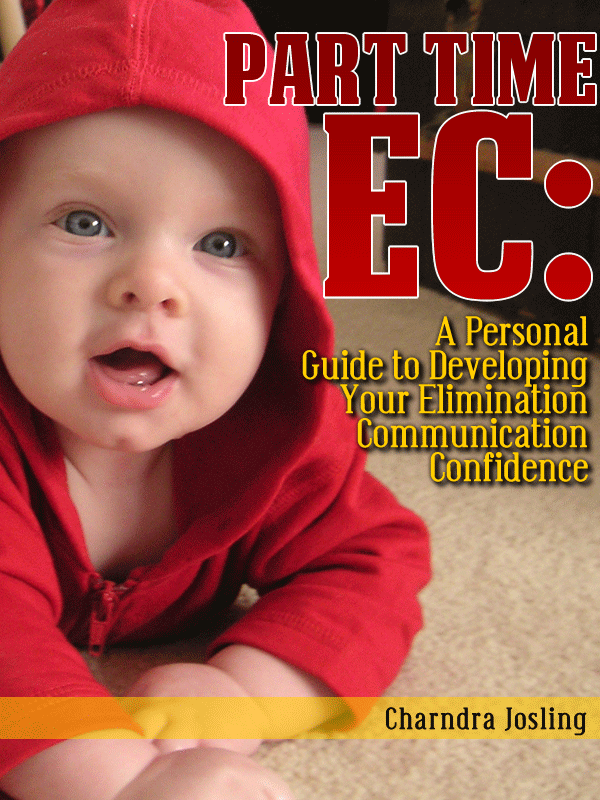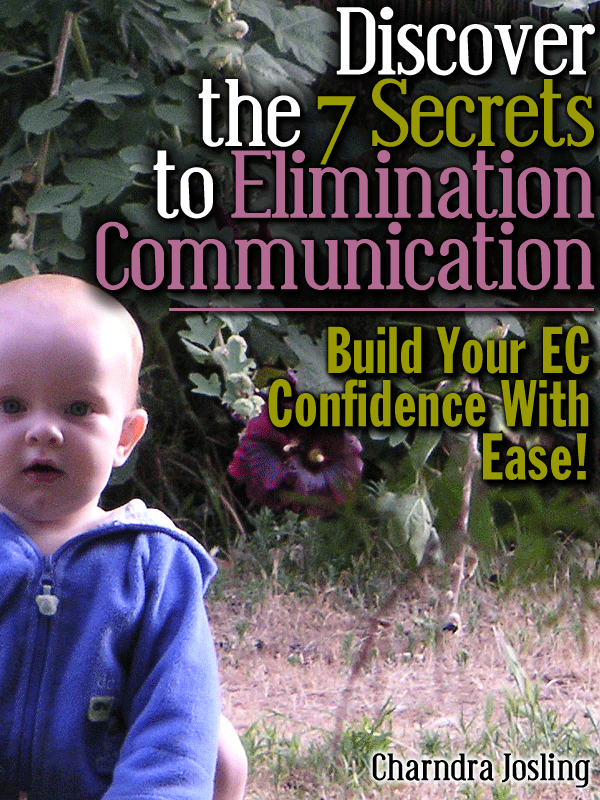Terms Used to Describe Elimination Communication
Elimination Communication (or EC) is a Way of Connecting With Your Baby to Manage their Personal Hygiene Needs.
Simply, You ‘Catch’ Your Baby’s Wees and Poos, Rather Than ONLY Using a Nappy 100% of the Time.
Elimination Communication is holistic and encompasses many other parts of your relationship.
It is based on helping your baby to go to the toilet in a potty, or while held safely in your arms, rather than the baby only using a nappy and you always cleaning up afterwards. Instead you help baby to use the potty sometimes, and sometimes use nappies. (Perhaps always for your peace of mind - they help you stay relaxed)
This whole idea of EC makes so much sense…newborns make so much obvious noise and movement and facial expression when they are about to pee or poo, so why NOT take advantage of that to reduce the number of nappies we use!
Holly, USA
From Full Time Nappies to Using Nappies Part Time, Then No More - that’s Elimination Communication.
In time the balance shifts - and you find yourself changing less nappies and knowing more often when your baby needs your help to relieve themselves. Your aim is to assist your baby as often as you can, so baby prefers to feel clean and dry - like the rest of us!
Elimination Communication is Practiced World-Wide by Millions of Families…
It has been practiced throughout time and still is a common way of caring for a baby’s hygiene needs in many countries in the world, in Africa, India, many Asian countries - right now, today. These days we have nappies to help us with our ‘elimination communication’.
Nappies Are a Great Tool While You Practice Elimination Communication.
You can learn the skills and abilities to bond with your baby in this way.
These are the terms used to describe EC:
- Elimination Communication (EC),
- Infant Potty Training,
- Natural Infant Hygiene,
- Diaper Free,
- Nappy Free,
- Baby Pottying,
- Potty Whispering,
- Assisted Baby Potty Training,
- Assisted Infant Elimination,
- or simply “What we do with our babies.” In this website I generally use the terms “Elimination Communication (EC)” and “Part Time Nappy Free” to describe this gentle cooperative way to care for your baby.
In cultures who traditionally use this form of baby hygiene care they have no name for it - even my own Grandma (in suburban Australia) had to ask me what I was talking about - even though it is what she did with her own children! It was simply what she thought everyone STILL did. It was normal to help the baby to not have to wet themselves when you were there to help them, even if they were always in nappies as back-up.
 ‘Part Time EC: A Personal Guide to Developing Your Elimination Communication Confidence’
‘Part Time EC: A Personal Guide to Developing Your Elimination Communication Confidence’
230 pages of resources will be yours. Discover all you need to know about the Diaper Free Baby and start your journey into EC today…
Elimination Communication is a cumbersome term for a simple concept: helping your baby to pee in a potty from their early days to give them comfort and a clean diaper - at least some of the time!
- Charndra Josling



